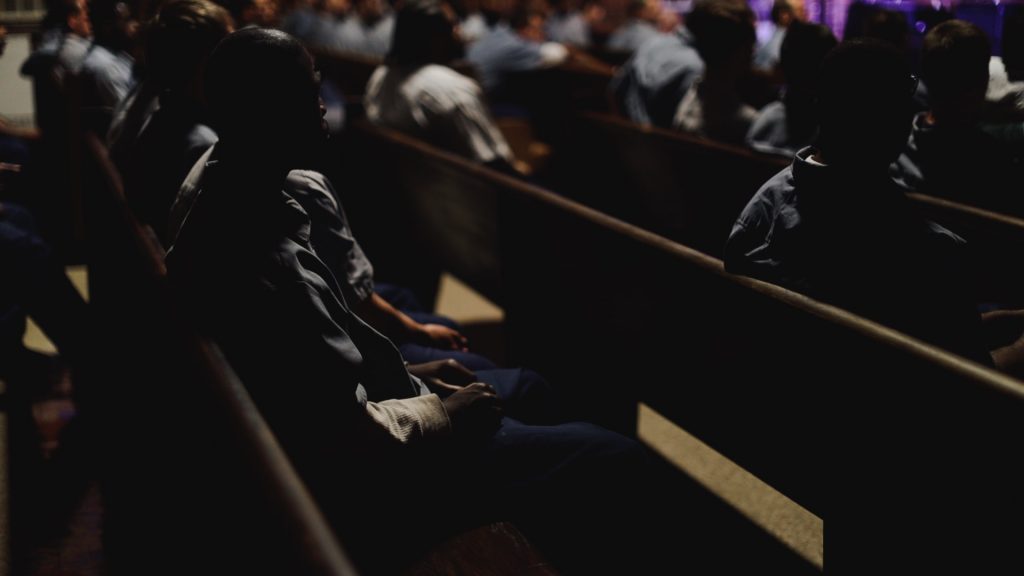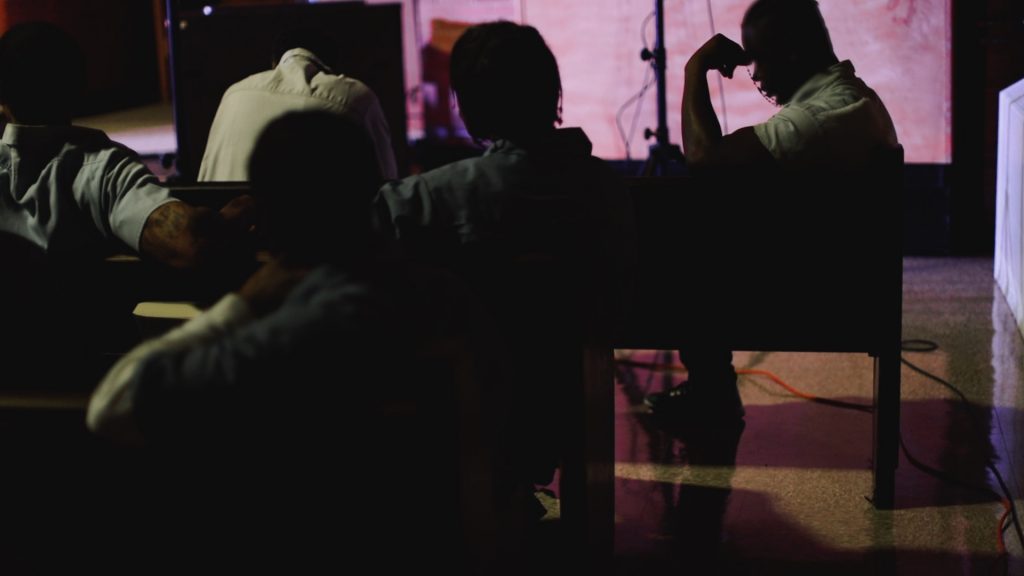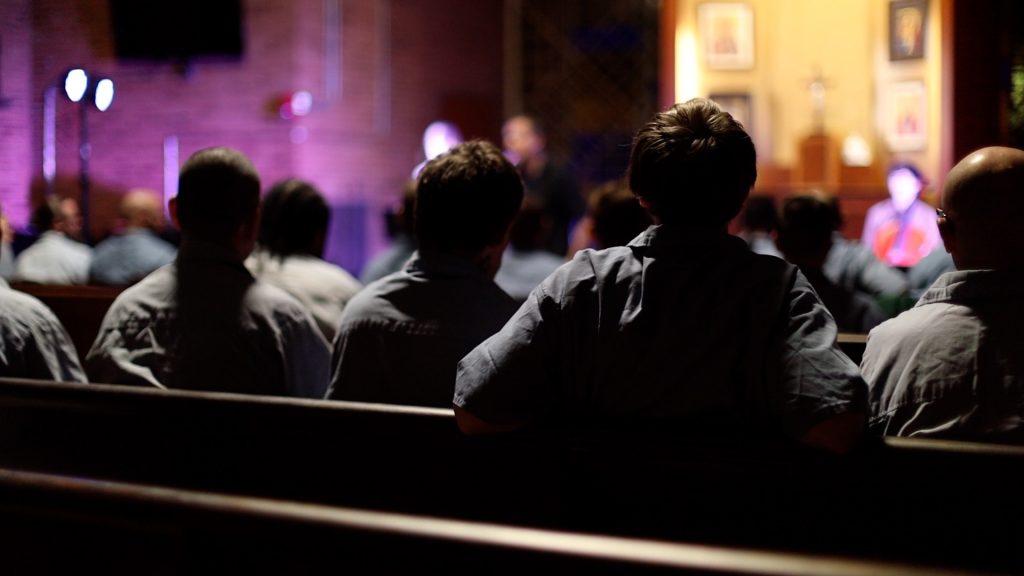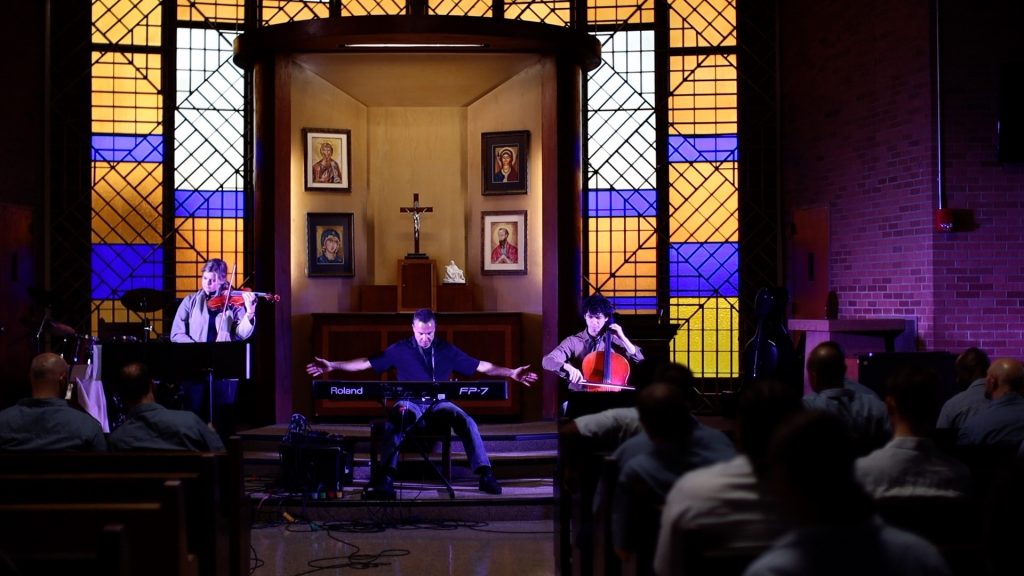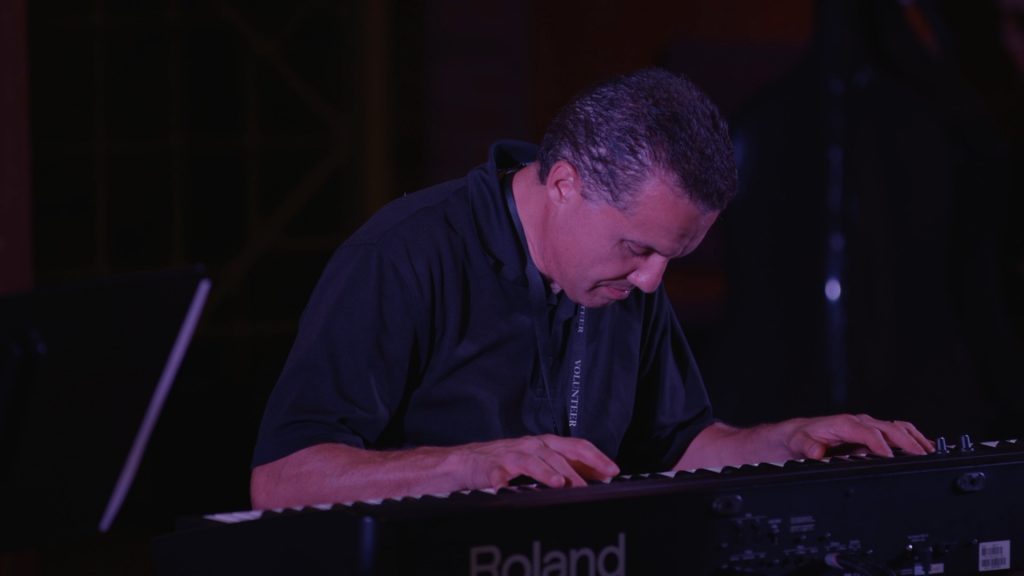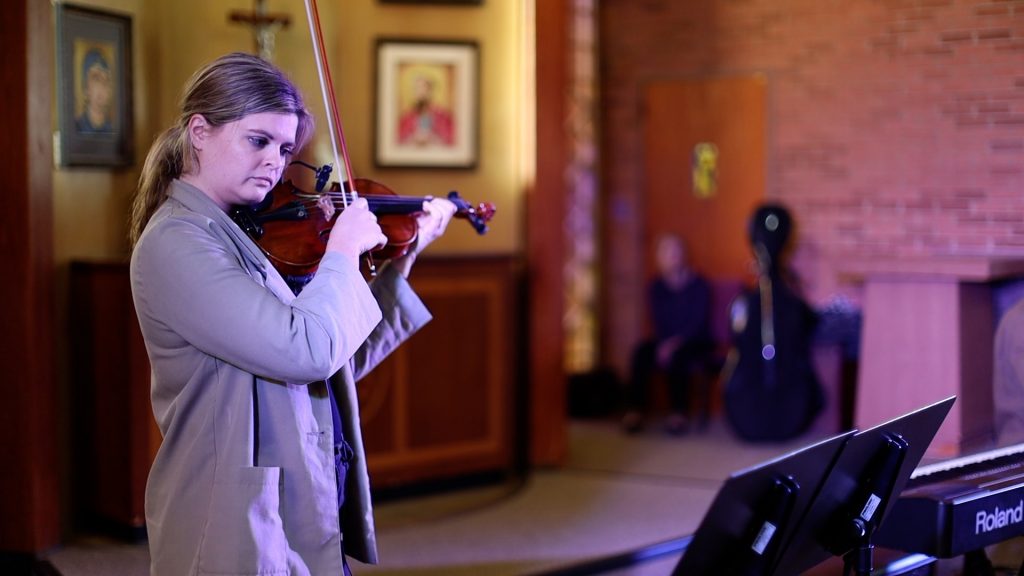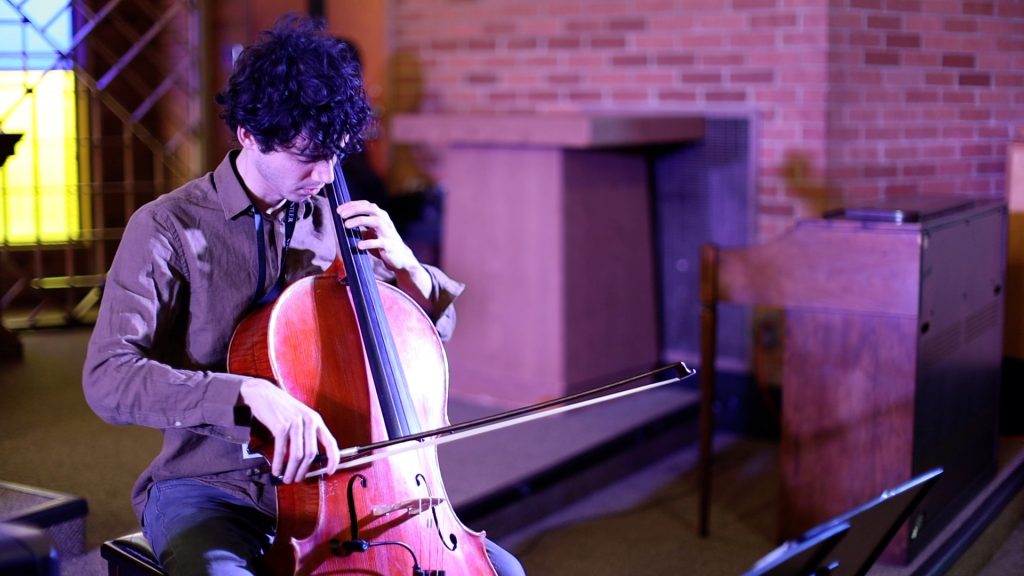Hope and Dejection Collide at Lebanon Correctional Institution
Composer and pianist Eric Genuis played hope and grace into existence before a crowd of more than 50 inmates at Lebanon Correctional Institution on Oct. 23.
The concert, organized by Marty Arlinghaus, director of prison ministry for the Archdiocese of Cincinnati, was part of Genuis’ “Concerts for Hope” series. Genuis travels the country playing free concerts for inmates at men’s and women’s prisons in an effort to bring light and hope into an often dark and dejected environment.
A Place of Dejection
As I pulled up the long driveway to Lebanon Correctional, the towering chain-link fences and sterile cinder block walls of the buildings came into view. My first thought was, “Wow, that’s a lot of barbed-wire.”
Walking through the main visitors’ entrance, warm and smiling guards, prison workers, the warden and the prison’s chaplain greeted me. There was an air of anticipation and excitement for the upcoming event, but the mood did not match the surroundings.
I had never been to a prison before, and wasn’t sure what to expect. To be honest, at first, it reminded me a lot of a 1960s-era high school: beige cinder block walls, echoing tile floors, glass block windows. But then there were all the bars and gates – that part was a little different.
As we passed through the third set of entry gates into a large hallway that led to the chapel, we encountered our first prisoners. Two lines of men stood by the walls, one leaving from the cafeteria, one about to enter, waiting to let us pass.
I wasn’t sure what to do. Look at them? Not look at them? I felt very awkward. It’s hard to act natural when you’re in a brand-new situation. But I did look at the men – for the same reason I look at the homeless I pass on the street or standing with a sign next to my highway exit – I want to treat them with dignity and respect. I didn’t want to pretend they didn’t exist. And what I saw was many faces of dejection.
Getting Up Close and Personal
Passing them in the halls was one thing, but after we set up for the concert in the small chapel, Marty asked me if I would be okay with inmates sitting next to me. Someone needed to sit by our video equipment to be sure no one messed with it.
Out loud I said, “Sure! No problem!” but inside, I can’t say I felt so confident.
As I sat at the end of the pew next to the camera tripod, the inmates began filing in. A group came to the end of my pew and shuffled down until a large African-American inmate with a thick beard and large eyes sat next to me. He gave me a quick nod. I said, “Hey, man,” and we both looked to the front.
I won’t pretend there wasn’t some strange behavior in the room. There were clearly men suffering from mental illnesses, but there was no violence, no interruptions, no negative behaviors of any type.
The man sitting next to me turned and asked, “Are you a reporter?”
“Yes,” I answered.
“Make sure you tell people we’re not all crazy in here. Some of us just made mistakes,” he told me. I promised him I would and wrote it down.
A Man With a Mission
Though he now resides in Kentucky with his wife and children, musician Eric Genuis grew up in Canada and trained at the Royal Conservatory of Music in Toronto and Berklee College of Music in Boston. Since then he has traveled the world to produce and play his original work.
His music is classical in form – he’s traveling with a cadre of world-class violinists, cellists and vocalists – but has a contemporary feel. Some of his songs feel more like a film score in the way they move you emotionally.
His mission is to bring beauty and dignity back to the imprisoned and marginalized, which he accomplishes through his Concerts for Hope.
The Loudest Applause
Genuis’ concerts are more than performances. He interweaves stories and humor between the music, and even takes time for questions from the group. The men are eager to ask questions: everything from how long it takes him to write a new song to the names of the various instruments that are on the makeshift stage.
But what is most impressive is the applause.
These men, some who say they have never heard classical music before, stand and cheer vigorously at the end of each song, and even sometimes in the middle of songs when they mistakenly thought a brief pause was the song’s end. They cheer with abandon, and the men around me turn, unbidden, at the end of each song to tell me how the song made them feel and which were their favorites.
Arlinghaus said, “I’ve been to concerts all over the world in some of the finest music halls, and I’ve never heard an audience applaud with such enthusiasm.”
After the concert, Genuis shared with me his hopes for the concert.
“So many of these men have never been introduced to beauty and goodness, and they are so rarely treated with dignity. I hope that, through this experience, they get a taste of higher things and a higher life and experience the mystical, profound, dignity that they were born with,” he said.
And Genuis practices what he preaches. Before the concert was over, he gave the inmates his address and encouraged them to write. He told them anyone can write him a letter and ask him to send one of his CDs to a friend or family member as a gift, and he will do it for free.
“Just make sure you don’t tell me to send the CD to momma without telling me momma’s address,” he joked.
A Light in the Darkness
It was dark by the time I left the prison, but there was a new light in my heart. I wondered who was most uplifted by the concert? The inmates? Myself? Genuis and the musicians?
One thing is for certain: No matter the circumstances, no matter the location, no matter the odds, hope wins.
“The light shines in the darkness, and the darkness has not overcome it,” (John 1:5).
To hear some of Eric Genuis’ music or learn more about his Concerts For Hope, visit ericgenuis.com. I highly recommend the songs, “Fury” and “Hero.”
For more on the Archdiocese of Cincinnati Prison Ministry, click here
